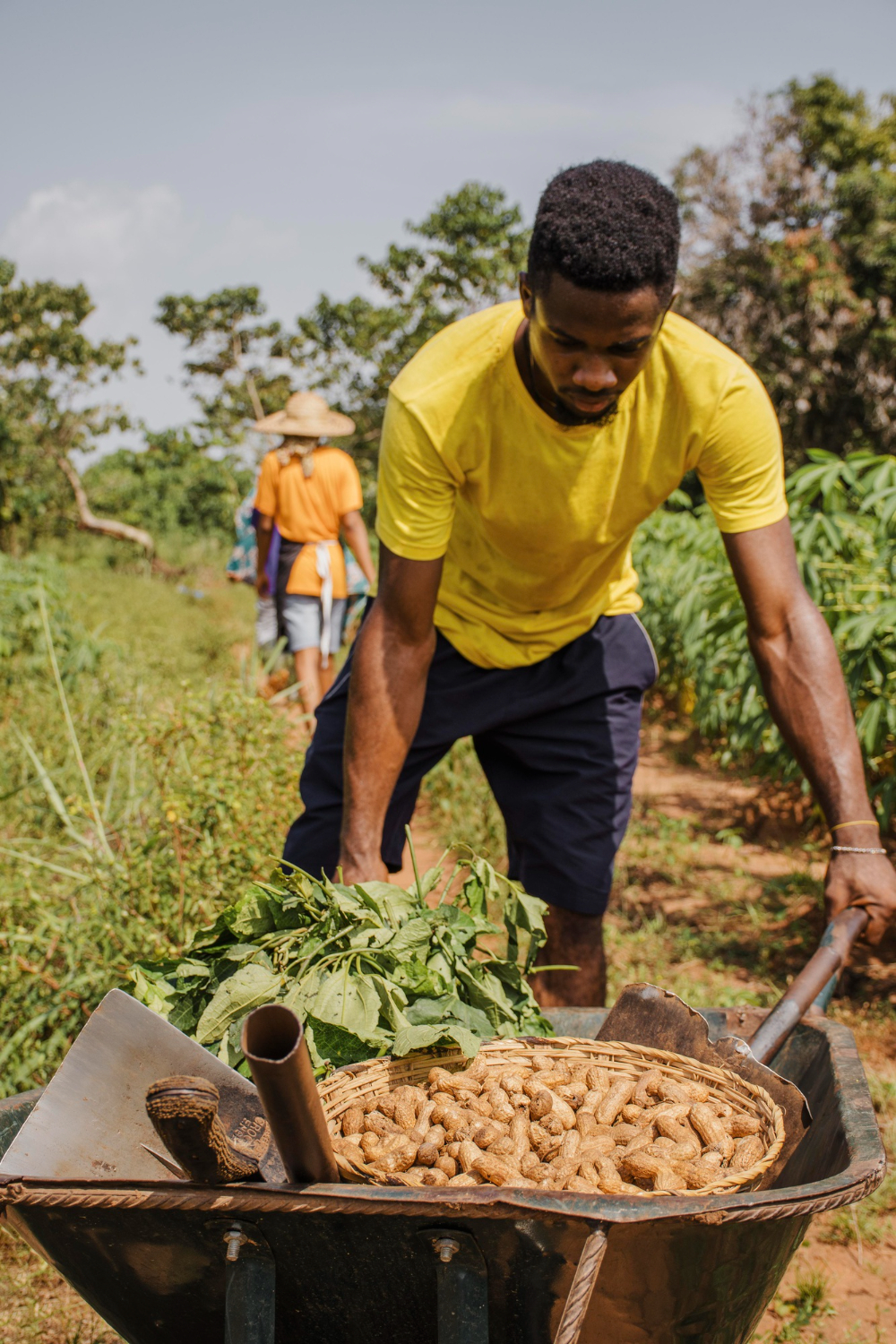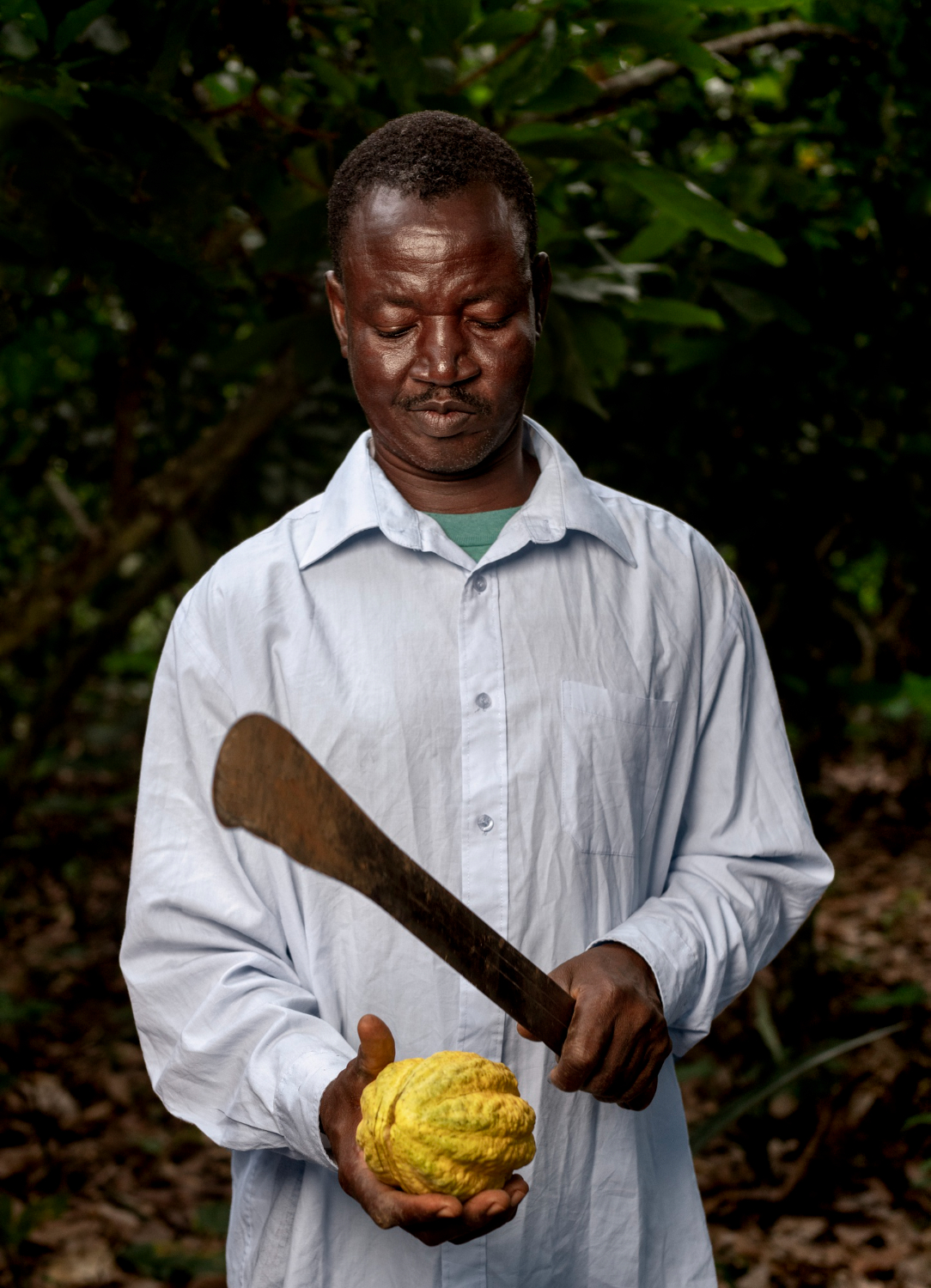Our Services
Waisenhaus Farm in Agricultural Farming
Crops grown in Nigeria include beans, rice, sesame, cashew nuts, cassava, cocoa beans, groundnuts, gum arabic, kolanut, cocoa, maize (corn), melon, millet, palm kernels, palm oil, plantains, rice, rubber, sorghum, soybeans, bananas, and yams.
But Waisenhaus Farms decided to venture into quite a few of these crops which are maize, cassava, Plantains, Bananas and yams because they have a huge statistic of sales in West Africa. The market is largely exported to various other sub African zones.

Waisenhaus Farm in Agricultural Production
Nigeria’s agricultural production is diverse and plays a significant role in the country’s economy. Agriculture contributes to the livelihoods of a large portion of Nigeria’s population, particularly those in rural areas. The sector encompasses various crops, livestock, forestry, and fisheries.
Key crops we produced includes:
Nigeria is the largest producer of cassava in the world. Cassava is a staple food and a major source of carbohydrates for millions of Nigerians.
Rice production has been a focus of government efforts to enhance food security and reduce import dependence. Nigeria is one of the largest consumers of rice in Africa, and efforts to boost local production have been ongoing.
Maize is widely cultivated across Nigeria and serves as a vital source of food and feed for both humans and livestock. Waisenhaus Farms acquired a large 10600arces of land at Oyo State from the state government in 2020 mainly for maize farming.
Nigeria is the largest producer of yams globally. Yams are a staple food in many parts of the country, particularly in the southern regions.
These grains are important for food security, especially in the northern regions of Nigeria.
Nigeria is one of the largest producers of palm oil in Africa, with palm plantations scattered across the southern part of the country.


Waisenhaus Farm in Food Production
Food production in Nigeria is multifaceted, encompassing various agricultural activities aimed at meeting the nutritional needs of its growing population. Some key aspects of food production in Nigeria include:
Nigeria produces a wide range of crops, including staples like cassava, rice, maize, yams, sorghum, and millet. Other important crops include beans, groundnuts, vegetables, and fruits. These crops are cultivated across different agro-ecological zones of the country.
Livestock farming is an integral part of food production in Nigeria. Cattle, goats, sheep, poultry, and pigs are raised for meat, milk, eggs, and other products. Livestock farming provides a vital source of protein for the population.
Nigeria has a significant fisheries sector, with both marine and inland fisheries contributing to food production. Fish is a major source of protein in the Nigerian diet, and the country’s coastal and inland waters support the production of various fish species.
Poultry farming is a significant contributor to food production in Nigeria. It includes the production of chicken, turkey, and other poultry species for meat and egg production. Eggs are a crucial source of protein and nutrients for many Nigerians. Most of our clients at Waisenhaus Farms gets our poultry produces in credits and refund after sales.
Food processing activities play a crucial role in adding value to agricultural produce and extending their shelf life. Food processing includes activities such as milling, grinding, drying, canning, and packaging of agricultural products.
Agroforestry practices, such as the cultivation of trees alongside crops and livestock, contribute to food production and environmental sustainability. Agro-processing involves the conversion of raw agricultural materials into value-added products like oils, flours, and beverages.
The Nigerian government implements various policies and programs to support food production in which Waisenhaus Farms is a pioneer advocate, improve agricultural productivity, and enhance food security. These interventions include subsidies, credit facilities, extension services, research and development, and infrastructure development.